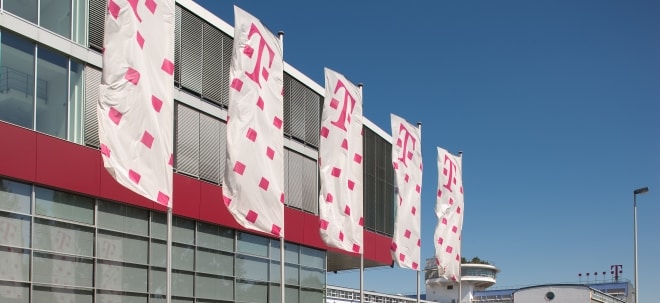Hauptgewinn!
Advanced Financial Network - Aug 29 4:19 AM
Alstom, Kawasaki Heavy, Bombardier win China high-speed train contracts BEIJING (AFX) - France's Alstom, Japan's Kawasaki Heavy Industries and Canada's Bombardier Inc have won contracts for the technological upgrade of China's inter-city trains, Chinese state media said. The contracts were awarded in a recent bidding for high-speed train technology in China, with the three companies participating via consortia with local enterprises, the Xinhua news agency said on its website. The entire project to modernize China's inter-city trains was worth 885 mln usd, according to earlier reports. The foreign technology would help China overcome some of its serious transportation bottlenecks by allowing trains to travel at speeds of 200 kilometers per hour, Xinhua said. The agency did not go into details about the extent of the contracts awarded or their value. Chinese officials and foreign businesses were unavailable for comment Sunday. Alstom won its part of the contract via a consortium with Chinese rolling stock maker Changchun Railway Vehicles, according to Xinhua. Kawasaki Heavy Industries participated in the bidding via a consortium with China's Nanche Sifang Locomotive, the agency said. According to earlier reports, the Japanese consortium also included Hitachi Ltd, and Mitsubishi Electric as well as three trading companies, Itochu, Marubeni and Mitsubishi.Bombardier's successful bid was launched through its China-based venture Bombardier Sifang Power, Xinhua reported. ph/br/tr
Jetzt die “alle haben gewonnen” Version von AP.:
China Awards Raiway Upgrade Contracts 1 hour, 4 minutes ago Add Business - AP to My Yahoo! By ELAINE KURTENBACH, AP Business Writer SHANGHAI, China - China's Railway Ministry has awarded contracts for upgrading key railway lines to six firms, including Kawasaki Heavy Industries Ltd. of Japan, Alstom SA of France and Bombadier Inc. of Canada, state media reported Monday. The deals, part of a $12 billion project to double the speed of trains on five railway lines to 125 miles per hour, mark the first major transfer of Japan's bullet train technology to China, the official Xinhua News Agency said. Kawasaki Heavy Industries' successful bid was made with Chinese partner Nanche Sifang Locomotive Co. It is expected to involve a modified version of the bullet train, which runs at a maximum speed of 172 miles per hour, the reports said. Alstom is teaming up with Changchun Railway Vehicles Co., they said. Alstom's TGV, or Train a Grande Vitesse, operates at a top speed of 218 miles per hour. The third contract went to Bombadier and joint venture partner Bombadier Sifang Power (Qingdao) Transportation Ltd., or BSP. The companies were chosen for the technology, design and production expertise they would be able to provide to China and Chinese companies, Xinhua said. Five railway lines are to be upgraded, stretching over 1,250 miles. They include a line between Beijing and the northeastern city of Shenyang and another connecting Qingdao and Jinan, two major cities in eastern China's Shandong province. The reports did not clearly indicate which companies were awarded which projects. The projects do not include a planned 700-mile high-speed trunk line between Beijing and Shanghai. That project, due to open bidding later this year, falls under the aegis of the government's National Development and Reform Commission. Japan, France and Germany have all lobbied Beijing hoping to win contracts for that project, forecast to cost as much as $14 billion. Chinese officials say they have not settled on what sort of technology to use for the new rail link, but that they plan to open the project to international bidding once a decision is reached. The Railway Ministry has said China needs to spend $240 billion on expanding the rail system, which is operating at full capacity and can only handle about a third of current demand for cargo transport. China began raising the speed at which trains operate in 1997. The most recent upgrade took the average speed for the fastest lines to 100 miles per hour.
|


 Thread abonnieren
Thread abonnieren

